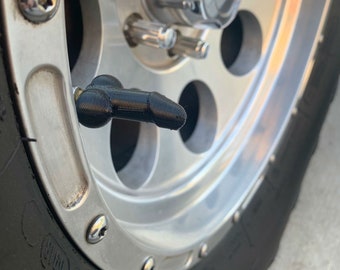Everything You Need to Know About Tire Valve Caps
Wiki Article
Tire valve caps may be small, nevertheless they play a surprisingly natural part in maintaining medical and safety of the vehicle's tires. Often overlooked, these tiny components protect your tire valves from dirt, moisture, and potential damage, which supports proper tire pressure and longer tire life. Whether you're a casual driver or a car enthusiast, understanding cool tire valve caps will help you avoid unnecessary tire problems.

What Are Tire Valve Caps?
Tire valve caps are small screw-on covers made to fit within the valve stem of the vehicle’s tires. The valve stem is the part that permits air to penetrate and exit the tire. Valve caps are usually made from plastic or metal, and their main job is usually to protect the valve core—the tiny mechanism inside that opens and closes to allow air in or out.
Why Tire Valve Caps Matter
Despite their size, valve caps offer several important benefits:
Protection from Dirt and Debris
They prevent dust, sand, and small debris from entering the valve stem, that could lead to air leaks or valve malfunction.
Moisture Barrier
Valve caps help keep water out of your valve system. Moisture can freeze in cold temperatures, potentially inducing the valve to hack or leak.
Air Pressure Maintenance
Although the valve core is designed to hold pressure, a cap gives an extra seal to stop slow leaks, helping to maintain optimal tire pressure.
Prevent Damage to Valve Core
Caps can prevent physical problems for the valve stem as well as internal components, specifically in rough driving conditions.
Types of Tire Valve Caps
There are some types of valve caps available, each suited to different needs and preferences:
Standard Plastic Caps
Basic, inexpensive, and effective for everyday driving.
Metal Valve Caps
More durable and sometimes used for performance vehicles. Some include rubber gaskets for added sealing.
Anti-Theft Caps
Designed to deter theft, these usually demand a special tool to get rid of.
Decorative and Custom Caps
These include branded, colored, or themed caps that let motorists add a personal touch.
Pressure-Indicator Caps
These change color or display numbers to point out if your tire pressure is low—useful for quick checks.
When to Replace Tire Valve Caps
You should replace your tire valve caps if:
They are missing or loose.
They show signs of damage or cracking.
You're varying your tires and desire a fresh set of caps.
You're upgrading to higher-quality or custom options.
Tire valve caps may seem like a detail, however they contribute significantly to tire maintenance and safety. By keeping contaminants and moisture out, help ensure that your tire pressure stays consistent along with your valve system works properly. Whether you opt for standard plastic or upgrade to custom designs, make sure your valve caps are securely in place—because sometimes, the small things come up with a big difference.